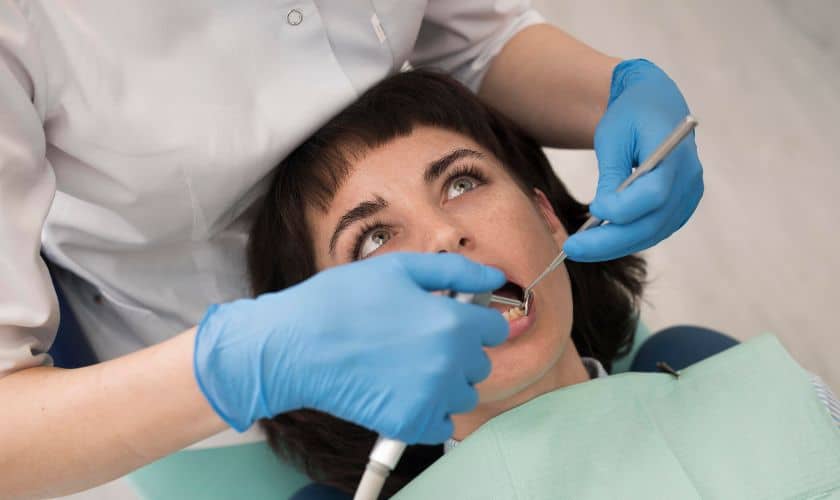Accidents can happen at any time, and dental emergencies are no exception. A sudden toothache, a knocked-out tooth, or a broken filling can be distressing and painful. In such situations, the services of an Emergency Dentist become invaluable. In this article, we will explore the importance of emergency dentists, common dental emergencies, what to do when faced with a dental crisis, the benefits of seeking immediate dental care, and tips for avoiding dental emergencies in the future.
Common Dental Emergencies
Toothaches: Toothaches can strike without warning and be caused by various factors, such as dental decay, infection, or gum problems. The pain can be excruciating, affecting your ability to perform daily tasks.
- Broken or Chipped Teeth: Accidents or biting down on hard objects can lead to broken or chipped teeth. This not only causes pain but also compromises the aesthetics and functionality of your smile.
- Knocked-Out Teeth: A knocked-out tooth is a severe dental emergency that requires immediate attention. If handled promptly, there might be a chance to save the tooth.
- Lost Fillings or Crowns: Losing a dental filling or crown can expose the sensitive inner layers of the tooth, leading to discomfort and vulnerability to further damage.
- Abscessed Teeth: An abscessed tooth is an infection that forms a painful pocket of pus. It requires urgent treatment to prevent the infection from spreading.
- Broken Orthodontic Appliances: For those wearing braces or other orthodontic appliances, a broken wire or bracket can cause mouth sores and discomfort.
What To Do In a Dental Emergency?
In a dental emergency, staying calm is essential. Follow these steps to manage the situation effectively:
- Stay Calm and Assess the Situation: Take a deep breath and assess the severity of the dental emergency.
- Contact an Emergency Dentist: Look for a nearby emergency dentist and call them immediately to explain the situation.
- Basic First Aid for Dental Emergencies: While waiting for professional help, there are some first aid measures you can take, such as rinsing your mouth with warm water, using a cold compress to reduce swelling, or taking over-the-counter pain relievers.
- Handling Knocked-Out Teeth: If a tooth is knocked out, gently rinse it with water (without scrubbing the root) and try to place it back into the socket. If this is not possible, store the tooth in milk or a tooth preservation kit while heading to the dentist.
- Managing Toothaches: Rinse your mouth with warm water and gently floss around the affected tooth to remove any debris that might be causing the pain.
- Controlling Bleeding: Use a clean cloth or gauze pad to apply gentle pressure if there is bleeding due to an injury.
- Dealing with Broken Teeth: Rinse your mouth with warm water and collect any broken fragments if possible. Visit the emergency dentist promptly.
Benefits Of Seeing An Emergency Dentist
Seeking immediate dental care from an emergency dentist offers several advantages:
- Prompt Treatment and Pain Relief: Emergency dentists prioritize quick action, providing immediate relief from pain and discomfort.
- Preventing Further Dental Damage: Timely intervention can prevent minor issues from escalating into more significant dental problems.
- Expertise in Handling Emergencies: Emergency dentists are experienced in dealing with various dental crises and are well-equipped to provide appropriate care.
- Availability After Regular Hours: Dental emergencies can occur at any time, and emergency dentists are available during evenings, weekends, and holidays.
Choosing An Emergency Dentist
When choosing an emergency dentist, consider the following factors:
- Location and Accessibility: Opt for an emergency dentist located near your home or workplace, making it easier to access during emergencies.
- Emergency Services Offered: Ensure the dentist offers comprehensive emergency dental services to address a wide range of issues.
- Qualifications and Experience: Check the dentist’s credentials and experience in handling dental emergencies.
- Patient Reviews and Testimonials: Read reviews from previous patients to gauge the dentist’s quality of care and service.
Tips For Avoiding Dental Emergencies
While some dental emergencies are unavoidable, following these tips can minimize your risk:
- Maintain Good Oral Hygiene: Brush and floss regularly to keep your teeth and gums healthy.
- Wear Mouthguards During Physical Activities: If you participate in sports or activities with a risk of dental injuries, wear a mouthguard for protection.
- Avoid Chewing Hard Objects: Refrain from chewing on ice, hard candies, or non-food items to prevent dental damage.
- Regular Dental Check-ups: Schedule regular dental check-ups to detect and address potential dental issues before they become emergencies.
In times of dental emergencies, an Emergency Dentist can be your lifeline, providing immediate care and relief. Whether it’s a toothache, a knocked-out tooth, or a broken filling, knowing what to do and where to go for help can make all the difference. By following the outlined steps and tips for prevention, you can safeguard your oral health and ensure a bright, healthy smile for years to come.
